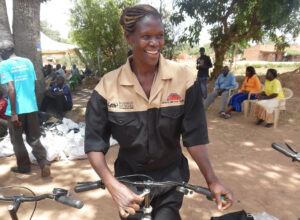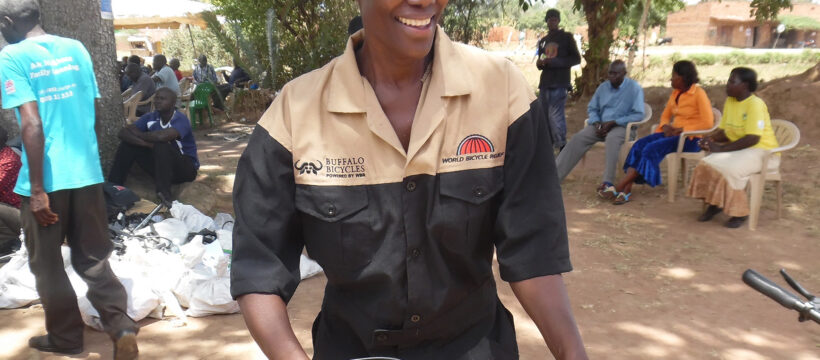It’s fascinating to see how bicycles are used all over the world to change lives

As an obsessed cyclist, one of the things I love to do when I’m on holidays is to observe how bicycles are used all over the world, so when I visited Rwanda in Africa a few years ago I was intrigued to see how the local people used bikes mainly to carry cargo. It, of course, made me think back to a blog post I wrote about the great work of World Bicycle Relief (WBR) which is an amazing charity providing rugged bicycles to people in developing nations.
For people like me, a bicycle is for recreation, for exercise and some of us use it for transport. For many people in poorer nations, it is an inexpensive, sustainable form of mobility, when mobility can mean the difference between seeing a doctor, getting to school, or making a living.
WBR doesn’t just hand over bicycles, it also trains people to become bike mechanics, and even women to become bike mechanics which is extremely empowering. It changes lives quite profoundly like 43-year-old Ugandan widow Alice Takoberwa.
Alice saw her husband die from HIV-related complications. The pain of losing a loved one paired with the stigma of single parenting drove Alice to join Kadama Widows Association in Budaka, Uganda. There she found a group of like-minded volunteers committed to saving their community from the scourge of HIV/AIDS.
Alice heard that 100 bicycles would be granted to Kadama Widows Association thanks to a partnership with Comic Relief and World Bicycle Relief. The bicycles would be used to help the widows with their work providing home-based health care services. Alice was thrilled! She had already mastered the art of cycling and looked forward to the positive impact of having these bicycles.
There was talk of an opportunity for someone in the group to be trained as a mechanic. Training mechanics to service the bicycles ensures that they remain in good condition long after the bicycles are provided. Alice didn’t have experience as a mechanic, but she wanted to challenge herself. “You can see women driving cars,” she said, “why not me too? I can cycle. Why not make me a bicycle mechanic?”
For five days, Alice attended field mechanic training at World Bicycle Relief’s assembly facility in Kisumu, Kenya. As part of her training, Alice learned how to build, repair and service the Buffalo Bicycles that she would later help maintain for her community at Kadama Widows Association back in Uganda.
A few weeks later, 100 bicycles were provided to the widows at KWA. Alice put her training to work and showed the other women how to properly care for their new bicycles. Alice believes widows can support and sustain themselves when empowered. “I want to teach widows to use their strength to work,” she says. “To remove the stigma that only men can work.”
With work comes the ability to provide for one’s own family. Alice says that this independence helps remove the stigma and the worries about inheritance or remarrying that many widows face.
With her Buffalo Bicycle, Alice is already achieving her goals to bring about social change. She also stepped up and bravely tried something new. Thanks to Alice’s resolve, the women at Kadama Widows Association will continue to move forward to a better future with wonderful role models like Alice.
Help other women just like Alice by donating to WBR today.

